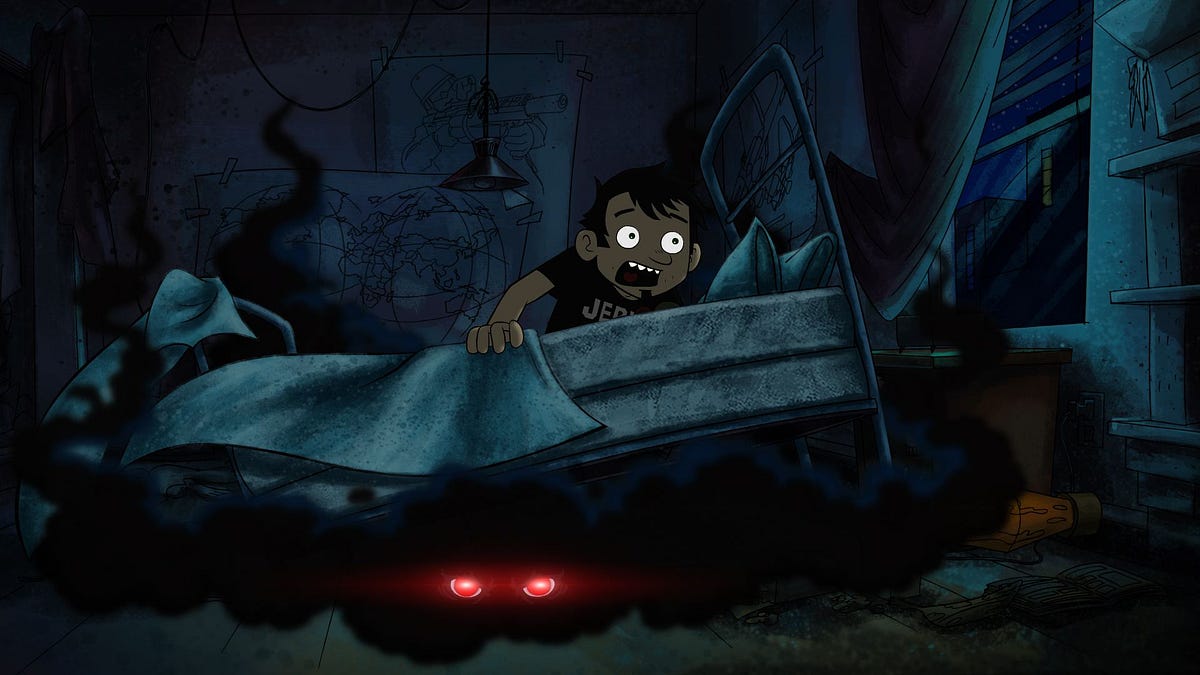
Shadow work
When there are just remnants of identification that get triggered, they don’t evoke fear when investigated. There is more likely an “Oh, that’s what is behind that reaction.” kind of response and they will likely not appear again unless the underlying belief is not fully seen through.
On the other hand, if the toxic starting point for the trigger is based on something more fundamental than habit, then
A. they will reoccur repeatedly, and
B. they will evoke a fear response when their toxic starting point is approached.
Many modern seekers also deal with emotional content, suppressed trauma, and thought loops patterns that are centered around rejecting emotional experience in the body.
Overall, the topic of shadow work.
As we debunk many of the current delusions such as the existence of a separate self, the idea of choice and control etc, we are dealing with beliefs.
Conditioned ideas that are taken by most of society as actual.
Beneath all of this is stuff that does not have verbal expression.
It is often trauma based.
Now, every kid suffers trauma. From being scolded to suffering corporal punishment. (or worse)
In most cases, the powerless child has no option but to internalize it.
As a survival tool, the body memorises and holds in contraction, that which had no expression. Sometimes these things can inhibit early realizations. Sometimes they don’t manifest until well into the ‘journey.
One of the main characteristic of the existence of ‘shadow’ stuff is avoidance.
Avoidance manifests as distraction when this stuff is first approached.
As we move in the direction of examining what provoked a trigger, we will either get seduced away by thoughts or some activity will appear to be immediately required.
This avoidance stops us from getting close enough to experience fear.
If, on the other hand, we recognize the avoidance behavior and continue with the investigation, then fear is likely to be the next avoidance block encountered.
Q: How do we investigate this stuff?
A: You may remember that back on the thoughts page, i mentioned a meme that said that a feeling is a sensation with stories attached.
This is how we investigate what is triggering about this.
You start by asking (yourself) what are you feeling and where are you feeling it.
The answers will almost certainly be a production of labels.
“Tightness (label) in the chest (label)” is an example.
The next step is to examine what are the details of “tightness” and be more specific about just what area of the chest is the feeling felt.
There will be many subtle details that are revealed as we get more intimate with the sensation.
Because we don’t need to communicate this, we also don’t need to fit the experience into words.
In fact words are simply inadequate to describe the subtleties of the experiencing.
At this point we are focusing on sensations. What is it. Where is it. What it is like. How it changes. Does it shift.
Stories, in the form of thoughts will appear, but we won’t engage with them.
Notice them but push them into the background. Keep getting closer and more intimate with the sensations.
At this point thought stories might get really insistent and the urge to do something might become overwhelming.
Recognizing this as avoidance will help you penetrate any fear that might be coming up.
Staying with the sensation, you will likely find that it is changing. Shifting and morphing.
Getting really intimate with it, you will likely find that it dissipates, but it will be replaced by other feelings (sensations plus stories)
Of course, everybody is different and will have their own version of this.
Another generalization of this is that fear will often give way to terror and this will sit on top of shame, which in turn will reveal guilt.
..and further this will be something learned when we were very young.
The reason that we (often) don’t remember this (until we start investigating) is that it is so painful that the repression of it means that it is held in the body. The mind rejects it completely.
Sometimes this is the consequence of a single incident, but way more common is that it is repeated conditioning.
An example is: “you can’t do anything right” being told frequently for years results in a feeling of unworthiness or incompetence.
DIVERSION
What we can assume is that the desire to eat or whatever it is, that is a diversion from something we don’t want to feel. And that something is undefinable because it has the potential to be catastrophic. At some unexamined level, and it was very likely was potentially catastrophic as an eight-year-old’s without the resources to cope with a lot of things that a much older person does have, a much more experienced person.
So that fear of what might happen, it never gets examined because we’re always succumbing to the behavior that takes us away from it, that we use to avoid it, that behavior being the desire for food or eating. That we can believe that presumption will prove to be right frequently, it may not always be right, I don’t know.
So what we’re saying is that what we’ve got is an organism that’s burdened with a particular kind of maladaptive behavior. It doesn’t work out well for us to have that behavior. It’s better if we didn’t health-wise and every which way I guess. But of course, to drop it means that we change. We become a different person. And ego. I’ll define, I’ll talk about ego at the moment.
But ego is… It is the self on on defense, defense duty, so to speak. So it’s stories that we believe that a crucial, or at least seem crucial to our feeling of wellbeing. Right. So we want to see ourselves in a certain way in order to feel okay. And we’ll do pretty much anything in order to keep seeing ourselves in that way.
That’s, you know, that’s really part of what we’re changing with this. The self view becomes different. and consequently the responding that we do is different and so on. Yeah. So, anything, anything you think, whatever the mind brings to the table, is a diversion. You know, in a good, bad, indifferent, anything, whatever it is that the mind brings to the table, is an invitation down the yellow brick road. You know, it’s an invitation for an adventure that is created every time. And that’s not to say that it’s inevitably bad that that happens because that’s everything. That’s all that happens. There’s no escaping that we spend our whole waking time and the considerable part of our sleep time simply responding to conditions in a way to maintain a particular story about ourselves. Crazy, absolutely crazy stuff. But yeah, that’s what we do. So when you consider that whatever your mind brings to the table is a diversion away from what you are feeling, it’s easy to get the idea that that’s wrong. But that’s not wrong. That’s okay. That’s what happens. Well, by the time you realise it’s happened, it’s already finished. It’s already done. Yeah. So, if you can just recognise that no matter what you bring to the table about that is only about that. It can’t be changed. It’s additional to it. It’s a post-it note that you put on reality. Whatever it is that’s about, it is a post-it note. It’s just surplus. But what it will do is it will add certain conditions that produce your next experience. And you can see fairly easily, imagine, that it’s not going to add conditions that are good. It’s just going to corrupt it in some way. It’s going to complicate it. It’s going to influence it.
I think that you and I have something that is a bit uncommon and that is that we are more inclined to take what real life offers us as the meat to work with, with this stuff, rather than generate it and take it to the laboratory, so to speak, as a way of doing it. You don’t need what I’ve suggested before. It kind of does sound like lab work, and it probably is as a preparation for the dynamism that comes with real life stuff, because you get plenty of it. Real life stuff gives it to you all the time, you know. Every time you have a fantasy about doing something or not doing something, know, you’re well and truly in it. There’s stuff to work with. That’s great. and then there’s language again. say stuff to work with, but for me it’s stuff to play with. I just love playing with it. How I respond to it. And you know, for a while, I’ve been really looking forward to somebody walking up to me and abusing me or I would love to have that happen. It has happened a couple of times in my life, but last time it happened, I got sucked into it so swiftly and so much that it was, I was agitated for a couple of hours. It was a stand-up yelling match with an asshole of a neighbour. But then he moved and I’ve got no one to do it with anymore, but I’d love it to happen just to see how I respond.
